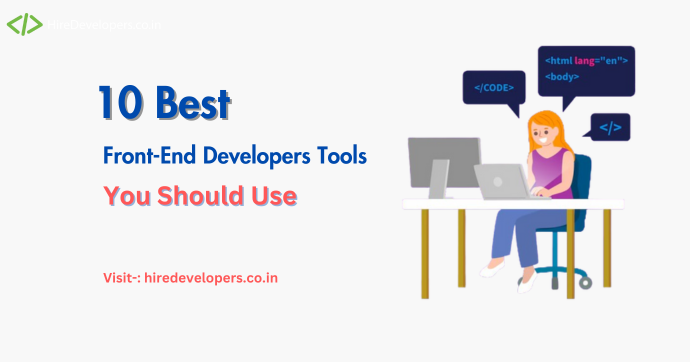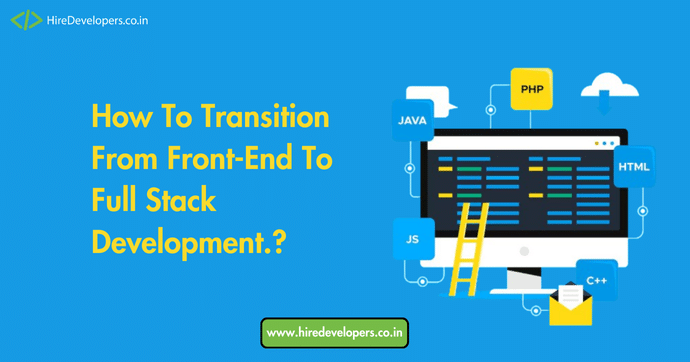December 1, 2024
Must Have Skills To Look For When Hiring Software Developers in 2024

Software developers are the architects of the applications and systems that power our lives. Finding the right talent to join your development team is crucial for ensuring the success of your projects. This guide explores the essential skills you should prioritize when hiring software developers, empowering you to build a dream team equipped to tackle any challenge.
Technical Expertise: The Foundation of Software Development
Strong technical skills form the cornerstone of any successful software developer. Here are the key areas to consider:
- Programming Languages: Proficiency in at least one core programming language is essential. The specific language will depend on your project’s needs (e.g., Java for enterprise applications, Python for data science). However, a strong understanding of programming fundamentals will allow developers to adapt and learn new languages quickly.
- Data Structures and Algorithms: A solid grasp of data structures and algorithms enables developers to design efficient and scalable software. This includes understanding how to choose the right data structure for a given task and implementing efficient algorithms to manipulate and analyze data.
- Database Management: Software applications often rely on databases to store and retrieve data. Look for candidates with experience in relational databases (e.g., MySQL, PostgreSQL) and familiarity with querying languages like SQL.
- System Design and Architecture: The ability to design and architect complex software systems is crucial for larger projects. This involves understanding different software architectures, designing scalable and maintainable systems, and ensuring efficient data flow.
Beyond the Code: Essential Complementary Skills
While technical expertise is vital, top software developers possess a broader skillset that contributes to their success.
- Version Control Systems: Software development is an iterative process. Look for candidates familiar with version control systems like Git, which allow developers to track changes, collaborate effectively, and revert to previous versions if necessary.
- Testing and Debugging: The ability to identify and fix errors (debugging) is a critical skill for any developer. Additionally, knowledge of testing methodologies and tools helps ensure the quality and functionality of the software.
- Cloud Computing: Cloud platforms have become a fundamental part of modern software development. Look for candidates with an understanding of cloud concepts and experience with leading cloud providers like AWS, Azure, or Google Cloud Platform.
- Soft Skills: Effective communication, teamwork, and problem-solving skills are essential for developers to collaborate effectively with colleagues, understand project requirements, and deliver solutions that meet the needs of stakeholders.
Mutually Beneficial Growth Through Developer Skills Training
The IT industry faces a persistent challenge: a skills gap between the qualifications employers need and the skillsets of available workers. While this might seem like bad news, it presents a unique opportunity for a different kind of growth. By investing in software developer skills training, IT leaders can cultivate a win-win situation for both their organizations and their employees.
- Benefits for Organizations: Companies gain a competitive edge in the digital age by fostering a workforce with the skills needed to navigate technological advancements.
- Benefits for Employees: Software developers equipped with in-demand skills can unlock lucrative career paths with high earning potential and job satisfaction according to the IT Skills and Salary Report (mention key statistics here like average salary and job satisfaction rate).
The Developer Skillset Arsenal
The specific skillset a developer needs depends on various factors, including the company’s software focus, development tools, and individual career goals. However, some fundamental hard and soft skills consistently rank high in demand:
Hard Skills
- Coding Languages: JavaScript, C++, Python, and others form the bedrock of a developer’s skillset. The specific languages needed will vary based on the developer’s specialization (front-end, back-end, full-stack, mobile).
- Data Science, Algorithms & Machine Learning: As these fields gain traction, the ability to integrate them into software becomes increasingly valuable. Python is a great starting point for those interested in this growing area.
- Cloud Computing: The rise of cloud platforms necessitates familiarity with cloud environments like Microsoft Azure, Google Cloud, and Amazon Web Services (AWS).
- Git & GitHub: Version control is essential for collaboration and efficient software development. Git and GitHub are industry-standard tools for managing code changes.
- SQL & Database Technologies: Effective interaction with databases like Oracle, MySQL, and Microsoft SQL Server is crucial for software functionality. Learning SQL provides a solid foundation in this area.
- Cybersecurity: With cybersecurity concerns at an all-time high, developers play a vital role in building secure software. Earning cybersecurity certifications can enhance a developer’s skillset and marketability.
Soft Skills
Beyond technical expertise, soft skills are equally important for success in the collaborative world of software development:
- Project Management & Software Development Lifecycles: Understanding the development methodology used by the organization (Scrum, Agile, DevOps, etc.) allows developers to work more efficiently.
- Communication & Collaboration: Clear communication with team members, clients, and customers is essential for successful software development.
- Problem-Solving: Developers are problem-solvers at heart. The ability to think critically, analyze code, and creatively resolve challenges is paramount.
By investing in developer skills training, IT leaders can bridge the skills gap, fostering a future of mutual growth and success for both the organization and its workforce.
Read More-: Varieties of Software Developers
Building the Perfect Match: Aligning Skills with Project Needs
When evaluating candidates, prioritize the skills most crucial for your specific projects. For example, a mobile app development project might emphasize experience with Swift or Kotlin, while a data science project would require expertise in languages like Python or R.
By carefully considering the technical and complementary skills outlined above, you can ensure you are hiring software developers who are not only technically proficient but also possess the qualities necessary to thrive within your team and contribute to your long-term success.





